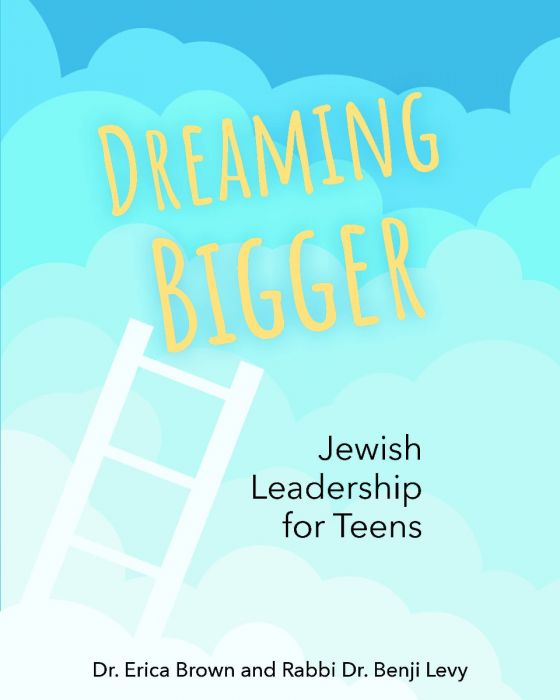Judaica
-
15 JanRead more »
New fo rthe 2026-2027 school year, an entirely new way to study Torah, using the character strengths from the VIA Institute.
-
19 FebRead more »
Today more than ever, we need to develop Jewish leaders who feel empowered in these confusing times. Help your teens do exactly that.
Dreaming Bigger: Jewish Leadership for Teens by Dr. Erica Brown and Rabbi Benji Levy is a stunning resource for Jewish teens who want to make a difference in the world.

Teens have energy and idealism and are looking to make a difference, yet they don’t have the skills. Dreaming Bigger
-
31 JulRead more »
Jonathan Shmidt Chapman shows us how to tell Bible stories to children.
-
3 NovComing in June 2024, the best Bible resource book ever, from award winner and 2023 Covenant Foundation Jewish Family Education Fellow Jonathan Schmidt Chapman.Read more »
-
3 NovRead more »
Coming for Passover 2024, a haggadah that recognizes the heroism in Jewish culture and its contribution to our world and the enduring story of freedom that began with the ancient Exodus.
-
19 AprRead more »
Jewish tradition teaches us how to engage in constructive disagreement, where the goal is to learn and to strengthen relationships, rather than to win an argument.
Yet when the subject is Israel, nuanced opinions are usually sidelined. Israel is turning 75 this month, amid one of the most complicted periods of its existence.
The question for us as Jewish educators is how to how to give our students supportive spaces and freedom to grapple with the complex issues of Israeli history.
Shying away from teaching about modern Israel is not an option. It's the Jewish homeland, the realization of a 2,000-year-old dream and the base from which the story of the Jewish people unfolds.
“It’s essential that our students gain an understanding of Israel’s place in the historic, cultural, political, and religious development of the Jewish people so th
-
4 JanRead more »
For all of us, the past few pandemic years have been scary and disorienting. For teens in a hunkered-down society, it’s also meant losing opportunities to develop independence.
“What our teens need in this moment is support for finding their voice and finding their autonomy. Then we’ll slowly see the pain and fear untangle,” says Michelle Shapiro-Abraham, an award-winning teen educator and director of strategic innovation and youth programs at the Union for Reform Judaism. "We need to showing them that they can claim their power.”
-
17 NovRead more »
Why do we keep telling the story of our people from one generation to the next?
Each time we retell stories from the Bible, we learn something about ourselves and our relationships. These stories also encourage critical thinking skills in our students and help them understand important Jewish values that continue to guide us today.
There are many Bible resources that help children explore the deeper meaning and shape how they live that learning in the world.
For example, if the curriculum is focused on early Torah stories, you can use a core text such as The Explorer’s Bible or Teach Me Torah. Then engage new perspectives by layering in other elements, like a storybook
-
14 SepRead more »
Think you know the stories of Abraham and Sarah and Eve and Moses?
The Bible only tells us part of their stories.
Imagine seeing the full picture. Maybe we’d discover that Adam and Eve were challenging the rules, growing up, or that Noah felt fearful and angry, desperate for any kind of hope.
Or maybe we’d find out that Moses felt dread at being asked to lead the Israelites
Maybe these iconic figures of the Bible were people just like us, filled with fear and joy, jealousy and passion, mischief and love.
Maybe It Happened this Way, by Rabbi Leah Berkowitz and Erica Wovsaniker, is a modern take on Bible stories, with relatable characters; not earnest and reverent, but not transgressive either.
It also helps students understand the difference between the biblical text and the Jewish concept of midrash - stories created to add new layers to our understanding of the Bible.
“With this book,
-
23 JulSuccessful education starts with relationships - among students, and between children and teachers. These sample icebreakers can help get you started.Read more »


